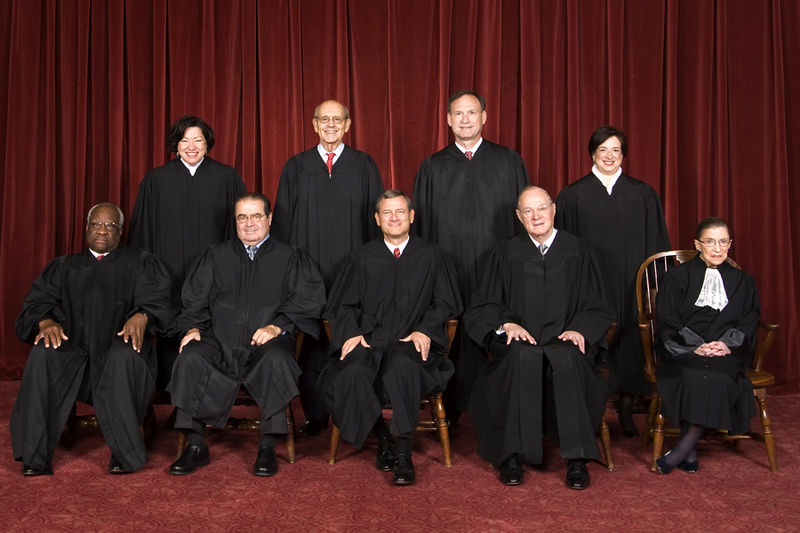 Hundreds of people like Alabama’s Evan Miller are newly-eligible to appear in front of sentencing judges and perhaps parole boards, as the U.S. Supreme Court strikes down certain life sentences without parole that were handed out to juvenile offenders.
Hundreds of people like Alabama’s Evan Miller are newly-eligible to appear in front of sentencing judges and perhaps parole boards, as the U.S. Supreme Court strikes down certain life sentences without parole that were handed out to juvenile offenders.
As a drug-addicted, abused, neglected minor in and out of foster care, 14-year-old Miller and a friend, killed his mother’s drug dealer in 2003 after an evening of sharing drink and drugs. Under a mandatory sentencing law that ignores mitigating factors, Alabama sent Miller to prison for life without the chance of parole.
But now minors like Miller must be allowed to present mitigating circumstances and the sentencing judge or jury must pay attention, the court ruled on July 25 in Miller v. Alabama.
“Its kind of a new procedure that I think is going to be imposed in some jurisdictions,” said Richard Broughton, Assistant Professor of Law at the University of Detroit’s Mercy School of Law.
The list of mitigating factors, he said, “is potentially limitless.” In other kinds of cases it can include a rough childhood, alcoholism, low IQ. “Anything related to the defendant’s background,” Broughton said.
A total of 22 states already do that: a defendant can present mitigating factors to the judge or jury during the sentencing.
So the ruling is immediately applicable to the other 28 states and to federal courts.
Anyone can still give a juvenile life without parole for murder, but the sentence can’t be imposed under a one-size-fits-all mandatory sentence.
Louisiana holds a few hundred of the roughly 2,500 people nationwide who might be affected by Miller, according to research by Human Rights Watch, a lobby that fights such sentences.
“You would be eligible to have the sentence overturned,” said Frank Neuner, Chairman of the Louisiana Public Defender Board. “You would have to engage an attorney to take a writ of habeas corpus or appeal to the court that sentenced you.”
It’s only the sentence that can be appealed, he emphasized, not the verdict.
States that are not compliant with Miller now must fix their statutes and in the meantime, judges must ignore the unconstitutional state law.
District attorneys “need to read the opinion, they need to make sure that judges before whom they’re practicing understand the opinion,” said Broughton. They and prosecutors can also help craft and push Miller-compliant state legislation.
But even in Miller-compliant states, judges and juries may need to make sure they pay attention to mitigating circumstances. Indeed, Judge Steve Teske, who serves in Georgia where there’s no mandatory sentencing, pointed out that the ruling “requires” the sentence to take into account how children are different. (Teske is a contributor to the opinion pages of this publication.)
“Conceivably it is possible that if there was evidence that was strong enough presented to a jury or a judge that would counsel against a sentence to a lifetime in prison but they did it anyway,” he said, that could open the door to a charge of abuse of discretion.
Jurisdictions where Miller explicitly applies:
Alabama
Arizona
Arkansas
Connecticut
Louisiana
Delaware
Florida
Idaho
Illinois
Indiana
Iowa
Massachusetts
Michigan
Minnesota
Mississippi
Missouri
Montana
Nebraska
New Hampshire
New Jersey
North Carolina
Ohio
Pennsylvania
South Carolina
South Dakota
Texas
Virginia
Washington
Federal court
Maggie Lee is a reporter for The Chicago Bureau.
Check out more of JJIE's coverage of the Supreme Court's JLWOP decision:
